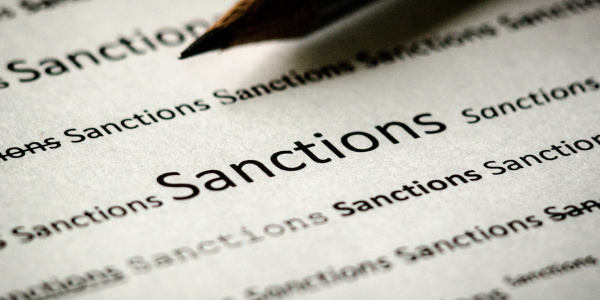
The EORI is only the beginning of the compliance responsibilities for the trader. By subscribing to the MSS Report, this further check enables the owner of the EORI to confirm that their record of customs declarations matches the HMRC information.
International Trade means Customs Declarations. To allow our goods to be exported from, or imported into the UK, there needs to be a declaration made to HMRC, who need to know specific information relating to the goods and the parties involved in the transaction.
This makes the EORI vitally important. Businesses cannot trade internationally without an Economic Operator Registration Identification. A GB EORI will be the business VAT Number, with an additional 3 digits. Although the EORI system applies in the EU, a GB EORI is required for the trader to be named as the consignor to export from the UK, or the consignee to import into the UK.
The EORI is only the beginning of the compliance responsibilities for the trader.
All the components of the declaration are the traders’ responsibility.
The trader could decide to ask a third party to complete the declaration to HMRC CHIEF. However, the trader must confirm their requirements to enable the Customs Declaration to be completed. The forwarder, carrier, customs broker, fast parcel operator (the declarant) needs to be established in the UK. The declarant cannot work on behalf of the trader without a written instruction. It must be confirmed if the declarant is working with the trader as a direct or indirect representative.
Providing the instruction to the declarant is only part of the compliance requirements. The trade must obtain a copy of the customs declaration to check it matches the instruction they have provided.
There are many considerations for a business to be a compliant International Trader. The name, address and EORI of the business identifies the trader to HMRC via the CHIEF declaration. There could be a variety of different departments who are involved in the various pieces of information that are required to be declared.
Sales could agree the export valuation. Purchasing could agree the basis of the import value. Various departments could be involved in classifying the goods against the UK Tariff. A business will need to decide if their export is permanent or temporary to ensure the correct Customs Procedure Code is declared. Preferential Trade is a consideration for many traders especially in a post Brexit World. However, Box 36 is a mandatory field for goods being entered to free circulation even if preference doesn’t apply.
Multiple customs declarations means that trade compliance need to provide instructions and check entries for a variety of different shipments each month.
It is important to know when the business EORI has been used. A log, record, or accessible database of each export / import is vitally important. This is the basis for the retention of documentation relating to international trade which businesses must keep on file. HMRC carry out audits on businesses to ensure they are compliant. All documentation relating to the export and import process must be retained. Goods could be temporarily imported under a special procedure, such as Inward Processing and subsequently exported after repair (as an example). In this example goods could appear on both the Import and Export log and the appropriate Customs Procedure Codes would “link” the two shipments.
An up to date log will ensure that the business knows what shipments have been made, when they have received a copy of the declaration and when that information is still waiting to be received.
For added compliance awareness, the international trader should consider subscribing to MSS Data. To explain, the acronym MSS is the Management Support System. This is a monthly report in the form of an e-mail spreadsheet supplied by HMRC that details every time the applicants’ EORI has been used in the month that the report relates to.
The key compliance check is to ensure that the business record of when their EORI has been used matches the information that HMRC has provided. Each customs declaration will have a unique reference number and a date. Keeping a record of the entry number whilst checking the information that has been declared is a useful exercise as there could be multiple customs declarations in each month.
The MSS Report will contain key pieces of information that form part of a traders’ compliance responsibilities. On the Export Entry Standard Item report this detail includes the Commodity Code(s), Customs Procedure Code, the ICS (Input Customs Status) and SOE (Status of Entry) code, which can be used as part of the traders’ evidence of export.
The equivalent import MSS Data (MSS Import Entry Standard Item report) also includes the Tariff Code and the type of import (the CPC), as well as the Preference Code that has been quoted in Box 36.
Full details of what information is available and how to subscribe to MSS Reports can be found on gov.uk https://www.gov.uk/guidance/mss-supporting-guidance#how-the-data-is-sent-to-you
Crucially for each declaration on the MSS Report, the entry number and the declarant are named.
This means that if the trader hasn’t received a copy of the customs entry, they can quote the entry number to the declarant to identify the document required.
If it is a customs declaration that the trader doesn’t recognise, they have the name of the declarant and the entry number to quote to carry out an investigation.
Ideally the traders’ record of their customs declarations should match the MSS Report. If there are additional entries on the MSS, the trader has the information to ask the declarant for further details.
This is important information to be aware of, especially if a business EORI has been incorrectly used. If a business has a record of their exports and imports and has obtained a copy of all the customs declarations that relate, that could be seen as compliant. By subscribing to the MSS Report, this further check enables the owner of the EORI to confirm that their record of customs declarations matches the HMRC information.
This will be important at audit when HMRC would audit the actual date submitted against the EORI. As customs compliance has increased due to the UK’s departure from the European Union, the importance of the benefits of MSS Data shouldn’t be underestimated.
While you are here you may be interested in some Strong & Herd LLP training courses & live clinics related to this topic:
Beginners Guide to Exporting & Importing
Introduction to Customs Procedures
Import Essentials: An Introduction to Importing
CDS Exports: The Customs Declaration Service
OneCall™ Email assistance as and when required; A one-call solution for all your import, export and customs enquiries. Export help. Import help. Customs help.
Stay informed about customs and international trade matters by subscribing to our OneCall™ service. This comprehensive offering includes a dedicated email helpline for support, timely practical updates direct to your inbox (Did You Know?), monthly UK Customs & Trade Briefings and access to an interactive members' area with an exclusive community for our subscribers.
International Trade Updates & Spotlight Newsletter
Subscribe to our free information emails covering international trade topics...
MORE INDUSTRY INSIGHTS...


Strong & Herd LLP







